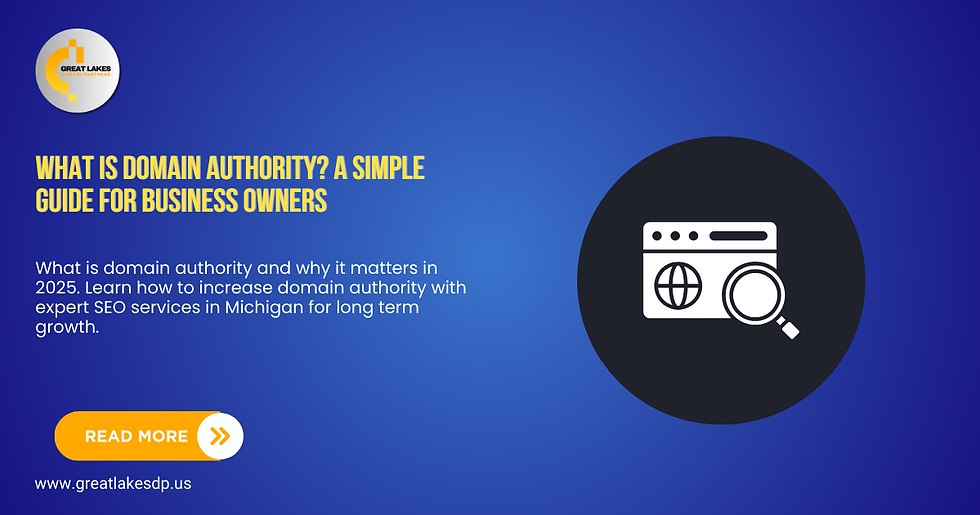The Rise of AI Chatbots for Websites
- Great Lakes
- Mar 19, 2025
- 4 min read

Multilingual Support: Engages users in their preferred language, expanding global reach. Seamless IIn today’s fast-paced digital world, businesses are adopting AI chatbots for websites to enhance customer experience, streamline operations, and improve conversions. With AI-driven automation becoming more sophisticated, chatbots now serve as virtual assistants, providing instant support and personalized interactions. According to a 2024 report by Gartner, 85% of customer interactions will be managed without human agents, highlighting the growing reliance on AI-powered solutions. Businesses looking for advanced chatbot solutions can partner with an AI Development Company in Michigan to integrate cutting-edge AI capabilities tailored to their needs.
Why Businesses Need AI Chatbots for Websites
From answering FAQs to assisting in lead generation, AI chatbots for websites have evolved into powerful tools. Here’s why they are essential for businesses:
24/7 Customer Support: Unlike human agents, AI chatbots provide round-the-clock assistance, ensuring no customer query goes unanswered.
Instant Responses: Modern consumers expect immediate answers. AI chatbots deliver real-time responses, reducing wait times and enhancing user satisfaction.
Cost Efficiency: Automating customer service with chatbots significantly lowers operational costs compared to maintaining large human support teams.
Personalized Engagement: With AI-driven insights, chatbots analyze user data and provide tailored recommendations, improving customer experience.
Scalability: Whether handling ten or ten thousand queries, chatbots can scale effortlessly, accommodating increasing traffic without compromising efficiency.
How AI Chatbots Work: The Technology Behind the Magic
The backbone of AI chatbots includes natural language processing (NLP), machine learning (ML), and artificial intelligence (AI). Here’s how these technologies work together:
NLP (Natural Language Processing): Enables chatbots to understand human speech, detect intent, and interpret queries contextually.
ML (Machine Learning): Learns from past interactions and improves responses over time, making chatbots smarter with each conversation.
AI Conversational Agents: Advanced chatbots that simulate human-like interactions, providing meaningful and context-aware replies.
Businesses working with an AI Development Company in Michigan can leverage state-of-the-art AI chatbot solutions tailored to their industry needs.
Steps to Developing an AI Customer Service Chatbot
Implementing a chatbot requires careful planning and execution. Here’s a step-by-step guide:
1. Define Objectives
Start by identifying the key problems the chatbot should solve. Common use cases include customer support, sales assistance, and lead generation.
2. Choose the Right AI Development Services
Partner with an experienced AI Development Company in Michigan that specializes in AI customer service chatbot development to ensure seamless integration and performance.
3. Select the Right Platform
Decide whether you need a chatbot for a website, social media, or mobile apps. Platforms like Dialogflow, IBM Watson, and Microsoft Bot Framework offer robust AI chatbot solutions.
4. Train the Chatbot with Data
Using real customer queries, train the chatbot to recognize patterns and provide accurate responses. Machine learning algorithms will enhance its capabilities over time.
5. Test and Optimize
Conduct extensive testing to refine the chatbot’s interactions. Monitor performance metrics and continuously update the AI to improve accuracy and efficiency.
6. Deploy and Monitor
Once launched, track chatbot performance, analyze customer feedback, and make necessary improvements to optimize engagement and satisfaction.
Key Features of an Effective AI Chatbot
When implementing AI chatbots for websites, ensure they have the following essential features:
Ntegration: Connects with CRM, eCommerce platforms, and third-party tools for enhanced functionality.
Voice Recognition: Allows users to interact through voice commands, improving accessibility.
Analytics & Insights: Tracks user interactions, providing valuable data for business growth.
Security & Compliance: Ensures data privacy with end-to-end encryption and GDPR compliance.
Future Trends in AI Chatbots for Websites
AI chatbots are continuously evolving. Here are some emerging trends in 2024:
Hyper-Personalization: AI chatbots will use deep learning to predict user preferences and deliver highly personalized experiences.
Voice-Enabled Chatbots: With the rise of smart speakers, voice AI chatbots will become more prevalent for hands-free interactions.
AI-Powered Visual Assistance: Bots will leverage image recognition to assist customers in troubleshooting and product selection.
Emotional AI: Advanced chatbots will detect user emotions and adjust their responses accordingly.
Elevate Your Business with AI Chatbots
AI chatbots have become indispensable for businesses seeking to enhance customer engagement, improve efficiency, and scale effortlessly. Whether you’re a small business or a large enterprise, investing in AI chatbots for websites can revolutionize customer interaction and drive success.
Get Started with AI Chatbots Today!
Looking to integrate AI-powered chatbots into your website? Great Lakes Digital Partners, a leading digital marketing and content marketing agency in Michigan, specializes in AI customer service chatbot development. Our ensure seamless chatbot deployment tailored to your business needs.
FAQs
1. How do AI chatbots improve website engagement?
AI chatbots provide instant responses, guiding visitors through queries, recommending products, and offering real-time assistance, leading to higher engagement and conversions.
2. What industries benefit the most from AI chatbots?
E-commerce, healthcare, finance, hospitality, and tech industries see significant benefits from chatbots by automating customer support and enhancing user experience.
3. How do AI chatbots handle complex queries?
Advanced AI conversational agents use machine learning to analyze user intent and access vast knowledge bases, ensuring accurate and context-aware responses.
4. Are AI chatbots expensive to implement?
While initial development costs vary, AI chatbots ultimately reduce customer service expenses and improve efficiency, making them a cost-effective investment.
5. Can AI chatbots integrate with CRM systems?
Yes, AI chatbots integrate seamlessly with CRMs like Salesforce, HubSpot, and Zoho to manage customer data, automate responses, and improve lead tracking.











Comments